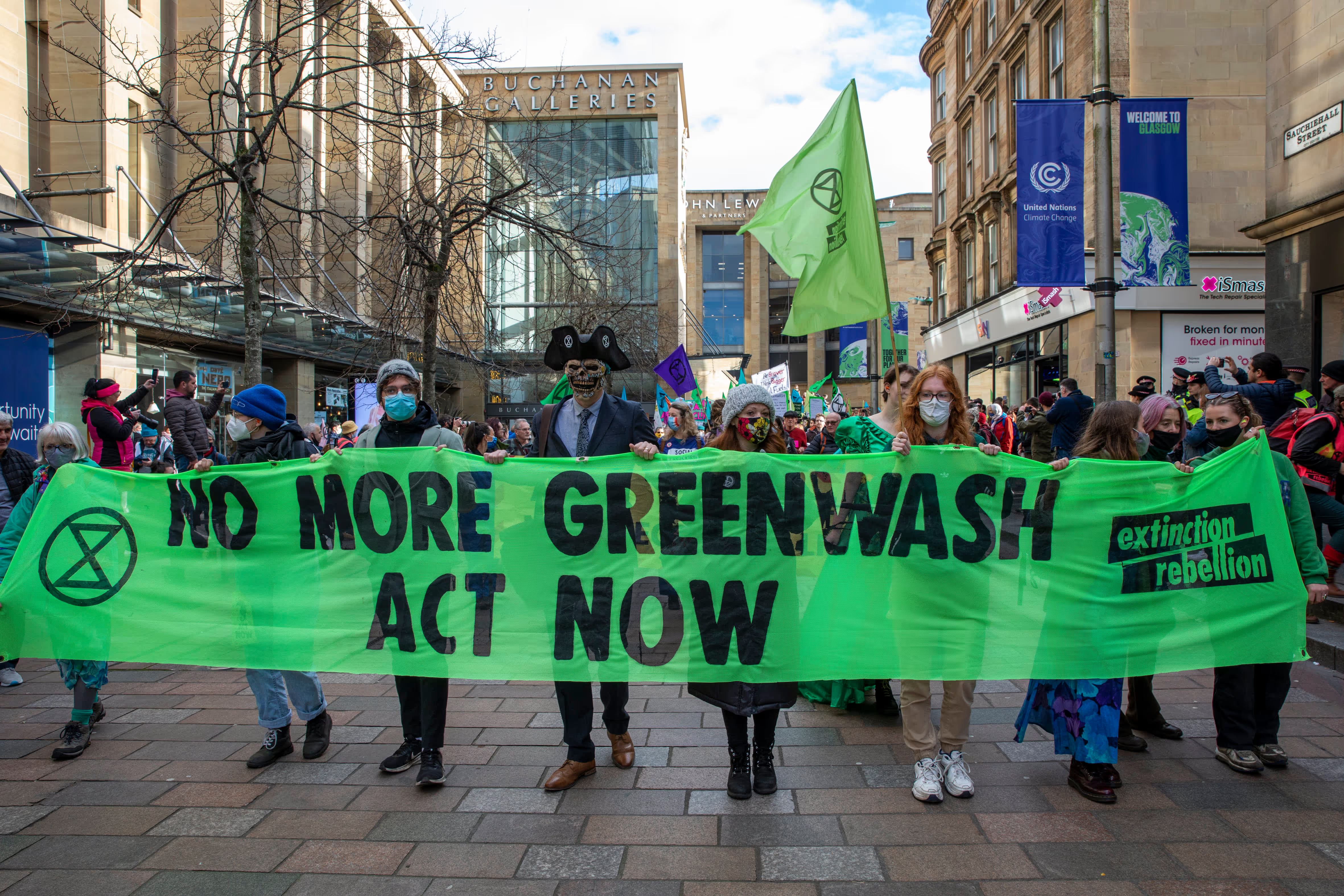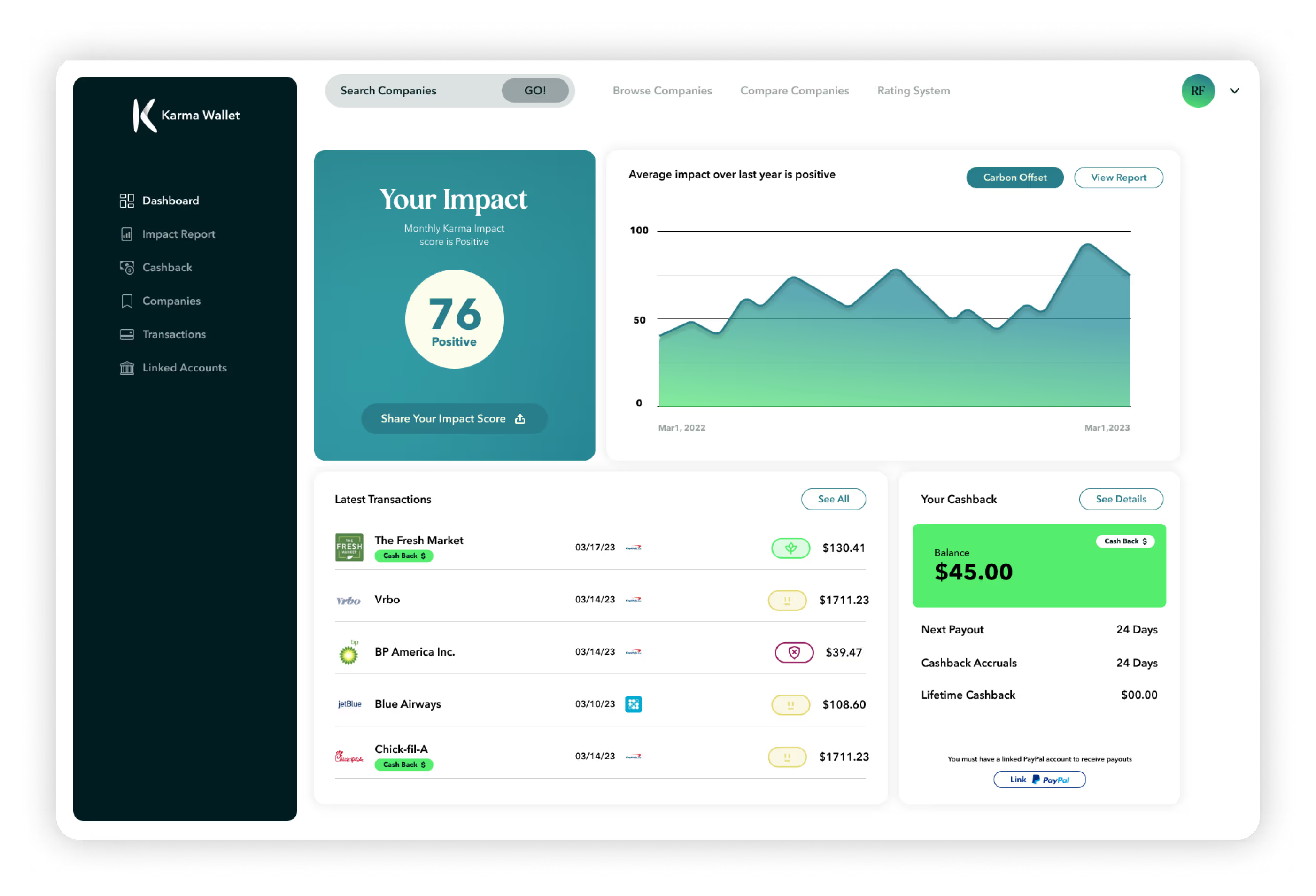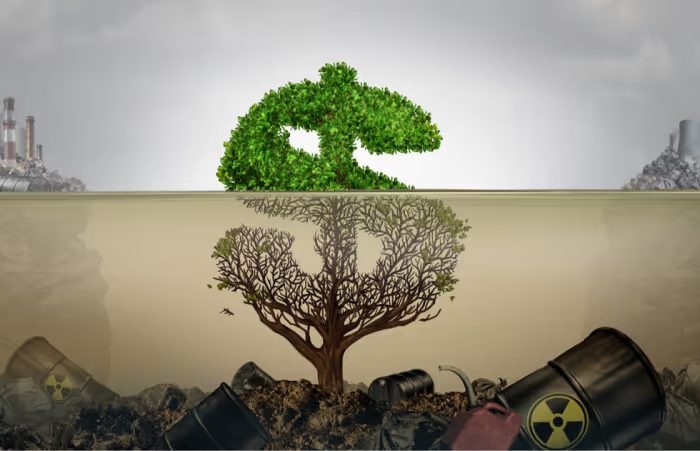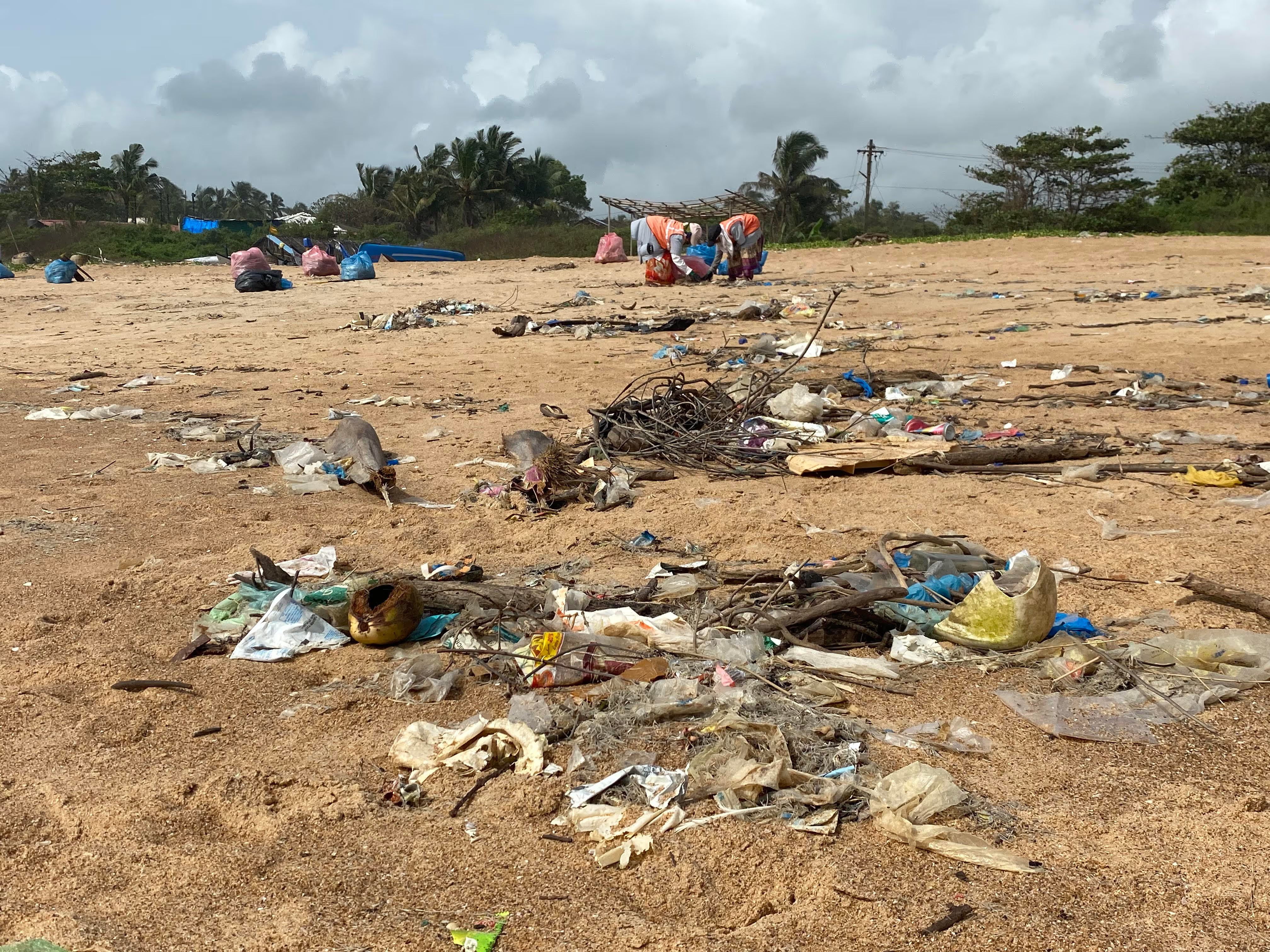Guest post from Karma Wallet, written for the Purpose Rising blog.
In a world where sustainability initiatives are at the forefront of consumer concerns, many brands are keen to be seen as eco-friendly and socially responsible. Why? Conscious consumerism is on the rise – and people want to support brands with clear values. In fact, The Roundup data shows that products marketed as sustainable grew 2.7x faster than products not marketed this way.
This means two things. First – more brands than ever before are integrating social and environmental initiatives into their business model. Huge win! But… more brands than ever before are also greenwashing. Instead of actually becoming sustainable through certifications, commitments, and meaningful actions, they instead try to mislead consumers with fancy marketing and branding.
Here we break down 5 ways to help you to tell when brands are greenwashing – and how to find better brands to shop with instead. Let’s dive in!

1: Vague and Ambiguous Claims
When it comes to greenwashing and sustainability claims, words make a huge difference. Brands that are truly sustainable are going to want to yell it from the rooftops… but are able to get super specific about exactly what they’re doing.
When brands solely use phrases like “eco-friendly”, “green”, or “natural” – without any specific details or certifications – it’s possible they are greenwashing. Though these words don’t inherently mean that a brand is greenwashing – if you look for details you should find that they can back up how and why their product is “green”.
2: Lack of Third-Party Certification
Certifications and third-party verifications are an important tool to combat greenwashing. Brands truly walking the walk in sustainability will likely certify their business and the materials and ingredients that make their products. Respected certification bodies will provide objective evaluations of a brand or their products so that you can trust their claims are the real deal.
rePurpose Global’s Plastic Neutral and Plastic Negative Certifications are a great example! Brands with this certification meet strict third-party standards for plastic usage and waste, while the impact is verified and independently audited. Karma Wallet highlights this certification, and more, on their Company Report Cards so you can find and support brands going the extra mile.
One exception to note is that super small, local, or start-up businesses sometimes lack the resources to pursue rigorous third-party certifications. If that’s the case – check for the specific details behind the claims mentioned above in point number 1.
3: Contradictory Practices
Actions speak louder than words when it comes to greenwashing. Pay attention to a brand’s overall actions and practices, not just their marketing claims. If a company claims to be eco-friendly, but isn’t addressing things like, for example, excessive packaging or use of potentially harmful chemicals, it’s possible that they’re greenwashing. Genuinely sustainable brands will align their practices with their environmental claims, and are always looking for ways to improve!
Looking at a company holistically can help you identify contradictory practices. A classic example of greenwashing is oil companies that invest in renewable energy and market that to their consumers to seem more sustainable. While at first you might think any amount spent in renewables is a win, their investment in fossil fuel extraction is much more significant than their renewable energy investment – and it’s likely just a marketing tactic.

4: No Transparency
You deserve all of the information about a brand or product before you support them. That’s where transparency and accountability come in! Look for brands that provide detailed impact reports, openly communicate their progress, engage in dialogue with consumers, and give you all of the information possible about materials, ingredients, labor, and packaging.
No brand is perfect – and social and environmental change is not super straightforward. But truly sustainable brands will prioritize transparency and authenticity above bold claims.
5: Narrow Sustainability Focus
Most brands focus on one or two sectors of sustainability. For some, that means tackling plastic waste, for others, their focus might be on cruelty free ingredients. It’s okay for a brand to have a main focus… but be wary if they seem to be neglecting other important aspects of sustainability. For example, a clothing company that is laser-focused on their organic fabrics should also acknowledge things like fair labor practices, single-use packaging, energy efficiency… You name it.
Genuinely eco-conscious companies will take a more holistic approach and have commitments across a few areas!
What you can do

Tools like Karma Wallet make it easy to find and support truly sustainable brands. We rate over 15,000 companies on their social and environmental initiatives. We list their company values and certifications (including brands with products certified Plastic Neutral and Negative from rePurpose Global!) so you can shop without the fear of greenwashing.
When you make a free account with Karma Wallet, we analyze your past purchases and give you a Karma Score – kind of like a credit score for sustainability – so you can see the impact of the brands you support and start shopping with those that truly align with the values you care about.
A more sustainable economy is the future – and brands are taking notice. Some will rise to the challenge and initiate meaningful sustainability commitments… others will simply greenwash and try to get away with it. Which ones will you support?
--
Karma Wallet, a financial technology platform that rates companies for social and environmental performance, has teamed up with rePurpose Global to list brands with Plastic Neutral and Plastic Negative certified products. Through Karma Wallet, you can get your personalized Karma Score – kind of like a credit score for sustainability – and earn cashback when you support sustainable brands. Create your free account to get started here!
rePurpose Global enables brands to take action on plastic waste, and also supports with communication tools and advisory services.



.avif)








